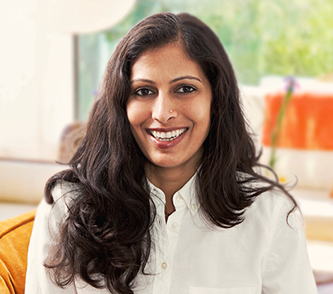Growing up, I used to look at my mom and think “This is what I’m supposed to be when I grow up”. However, my mom wanted more for me than she had, and she often told me that in our conversations. She did not get a university education; she did not pursue a professional career; in fact, she didn’t make most of her life decisions. So, growing up, I had mixed signals between what my mom did, and what she told me to do when I grew up.
Because of the internal confusion, I now struggle with how to divvy-up household responsibilities between myself and my partner. How do I show love through cooking wonderful meals, when I only have an hour between after school pick-up and dinnertime? Or, how do I speak up to be heard when sharing my valuable knowledge to an audience? You see, even though my mom told me about the opportunities that she and my dad worked so hard to ensure that I had, she exemplified a woman’s life without those opportunities. And that was the disconnect: experience had shown me how to live without the opportunity, but now I had to learn how to live with it.
When we run ourselves busy/crazy, we seldom consider the implications of our behaviour and how we are perceived by our loved ones. Mainly our daughters are affected, who learn most from what we do, not what we say. Case in point, when we don’t say “no” to people even though we know our plate is beyond full, our daughters see that as what they are going to have to do when they grow up. When we apologize for having a messy house when people come over, our daughters learn that there is shame in showing a home that appears “lived in”. Perhaps worst of all is when we say to everyone that we’re happy, but we look tired and are snappy to the people closest to us; our daughters learn that this is what happiness as an adult is supposed to look like.
Not only do we pass this on through our own actions, but also in our expectations of our girls. We enroll our children in classes and activities that give them an increasingly busy schedule, to the point where they understand the meaning of “fright night”. We teach them that it is important to be “well-rounded”, with the not-so-hidden implication that they have to be great at everything, or at least most things. That means they have to excel in extracurricular activities as well as to continue to do well in school. We snap at our daughters to do what they are told, and “be nice! It’s common to use the phrase “Hurry up!” when talking to our children. But by doing that we are teaching them that rushing is acceptable, and that their pace is wrong.
Instead, why don’t we teach our daughters to be the women they deserve to be by modeling what we want for them? Is our mothers’ way of living so engrained in us that we hold back from being effective role models for our daughters? Why, when we have so many resources available to us, do we keep making choices that hold us back from living the lives we want ourselves and our daughters to live?
It’s time that we become more real with ourselves, and be aware of the decisions we make. As nurturers, we might be convinced that setting a personal goal to be well and happy seems self-serving. However, if we reframe our perspective, maybe we can acknowledge that setting this goal is in the best interest of our loved ones. Maybe, if we show how important our well-being is to our daughters, they too will learn that we women not only have and deserve the ability to be happy; but that when we are happy, we make greater contributions to our society.
So, I propose from now on when you are faced with a difficult decision that compromises your health in even the smallest way, ask yourself, “Do I want my daughter as an adult to have this same experience?” If the answer is no, then you know what you have to do!



